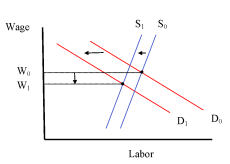The philosophical and legal foundation of the U.S. government (and some other governments) is that government officials are the agents of the citizens—in the familiar phrase, those who govern have the “consent of the governed.” An agent, of course, is someone I authorize to act on my behalf. For a host of reasons, this doctrine has always been more or less absurd, but its absurdity has been placed in stark relief recently by the government’s mass spying, which violates the Constitution, various statutes, and many official declarations and promises.
Imagine that I have an agent—for example, I currently have a building contractor in Mexico to whom I have given a legal power of attorney to act in specified ways for a specified duration in carrying out various transactions related to the construction of my house there. Now suppose that my agent refuses to give me full information on his activities performed on my behalf and—outrageous as it might seem—undertakes to spy on me. Then, when I challenge his defective agency and his unauthorized actions in court, he has the impudence to defend himself on the grounds that I lack standing to sue him and that the secrets he keeps from me are legally unblemished because they are “state secrets.” Obviously no one would tolerate such an agent; nor would any court uphold such blatant highhandedness.
Unless, of course, my agent—my agent according to the alleged agent, that is, not according to me—happened to be a government, the U.S. government in particular. Indeed, this twisted, sophistical, legal mumbo jumbo has prevailed for more than half a century pretty much without objection. In the past year, Edward Snowden’s revelations about the NSA’s massive spying activities have provoked for the first time substantial public protest and legal challenges to the government’s outrageous conduct in relation to the “principals” (the public) on whose behalf government officials purport to act as agents. Never before has the U.S. government’s sheer imperiousness been placed so clearly on public display.
To repeat, the claim that the rulers act as our agents has always been nonsensical, as Lysander Spooner showed almost a century and a half ago, but its incoherence is now illuminated as never before. If the government acts as my agent, it does so entirely by accident, because no agent that acts without my knowledge, approval, or accountability to me can make a plausible claim to agency. Our rulers may or may not be accurately described as dictators, but in no event may they be accurately described as my agents or as acting with my consent.







